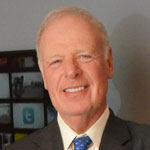With almost two decades of experience overseeing a variety of organizations’ human resources efforts, Debbie Pollock-Berry’s passion for her job, while even facing the most challenging of obstacles, has never wavered. When she joined XO Communications in 2011, Pollock-Berry quickly realized that she needed to be an agent for change within the company. Morale was low, and the culture within the company was still working to move beyond the effects of filing bankruptcy in 2002.

Pollock-Berry was charged with making XO a great place to work, but was not content with just boosting morale. She knew it would necessitate broad-sweeping programs and initiatives that found both quantifiable growth for the company and marked improvement in the working lives of XO’s employees. The end goal was an ambitious one: to transform XO Communications into one of the top 100 places to work. Pollock-Berry’s first step was to secure feedback from employees in order to set her course, and, to gather that critical information, she created a 100-day plan.
Brian Snow, an XO employee in the company’s Nashville office, describes a notable change in environment when Pollock-Berry came on board. “Morale was down,” he recalls. “I believe most employees felt there was an attitude of indifference that came down from the executives. Debbie seems to have brought a very different vibe to XO. One that shows that XO is proud of its employees and even wants to nurture them.”
Pollock-Berry’s 100-day plan included an introduction video, visits to as many offices as possible for personal introductions, and opening the lines of communication, with an end goal of creating a culture of trust: allowing the company’s employees to be optimistic about their future and their new human-resources advocate. For Pollock-Berry, a key component in creating this new culture was her efforts as the company’s new HR leader. She was intent on connecting over 3,000 employees, a large task for someone new to the organization, and, ultimately, the plan worked.
“Her level of engagement, energy, and compassion is really making a difference,” says Paul Douglas, who has had the pleasure of working in the same branch as Pollock-Berry. “I saw Debbie organizing and fixing up the main break room. I thought, if someone at her level cares enough to think about something as pedestrian as a break room, then I need to pitch in and help too.”
Incentives have played a huge part in employee success and commitment as well. First, Pollock-Berry transformed the tuition-reimbursement program by having XO Communications pay half of the tuition up front, allowing more employees to take advantage of the program. For seasoned employees, XO implemented an Employee Service Award Program. This is valuable, because one-third of the organization has been with the company for more than 10 years. These two changes had the added benefit of ensuring all age groups and levels of employees at XO were seeing new benefits.
What one word would you use to describe XO communications?
Paul Douglas
Senior Manager of Customer Financial Services
“Ever-changing.”
Brian Snow
Circuit Design & Provisioner
“Optimistic.”
Gaylynn Robinson
Executive Director of Human Resources & Benefits
“Dynamic.”
“Talent management is now a strong focus,” Pollock-Berry says. “XO is a company that moves full-speed ahead, and is a leader in the telecom space. We now have the right talent programs in place so that we can successfully remain in sync as we continue to make a difference in the telecom industry.”
The company’s efforts haven’t stopped there. In 2012, XO Communications took the time to understand how its employees viewed the company culture and their workplace through quarterly surveys. Engagement reached 45 percent of the workforce and saw positive movements in culture, leadership, and trust. Upswings happened in a single quarter, and this was credited to the leadership’s attention to detail. Once XO employees were able to share their thoughts and ideas in the surveys, the culture naturally improved as employees understood that they were valued.
The engagement uptick owes part of its success to a round of salary increases that Pollock-Berry worked with CEO Laura Thomas to secure for the workforce. Before Pollock-Berry’s arrival, 72 percent of the workforce had not received a salary adjustment for three or more years. In 2012, this population was granted raises, which coincided with another benchmark for the company: 2012 also marked the first year in 10 years that the company made a profit.
Pollock-Berry makes sure everyone is valued—even the people who usually do the valuing. “Most HR leaders are very good at recognizing the need for strategic alignment while focusing on employee impact,” says Gaylynn Robinson, a fellow HR staffer. “Debbie is unique in that she takes that same approach to her own team. Many times, the HR function does not receive the recognition nor kudos that are well deserved. Debbie is maniacally focused on this to ensure all employees ideas, thoughts, and feedback are heard.”
“Our HR team does the very best they can in a trying economy,” Douglas adds. “I applaud them for their commitment, their compassion, and their ability to laugh. Their attitudes are truly a testament to Debbie’s leadership.”
The environment at XO will continue to improve as Pollock-Berry not only keeps the lines of communication open, but solicits and really listens to the ideas given to her by employees. It seems she’s tailor-made for the job. “I enjoy coming to work every day, because I have great colleagues who will challenge me as needed, and support me and the efforts of the HR organization,” she says. “The HR team I have is full of great professionals that all have a can-do attitude. The most difficult part of the role is ensuring that the organization has the right people in the right roles and providing the employees the tools and resources to be successful. It is hard sometimes to agree on those things. No role is perfect, but my role is perfect for me.”

